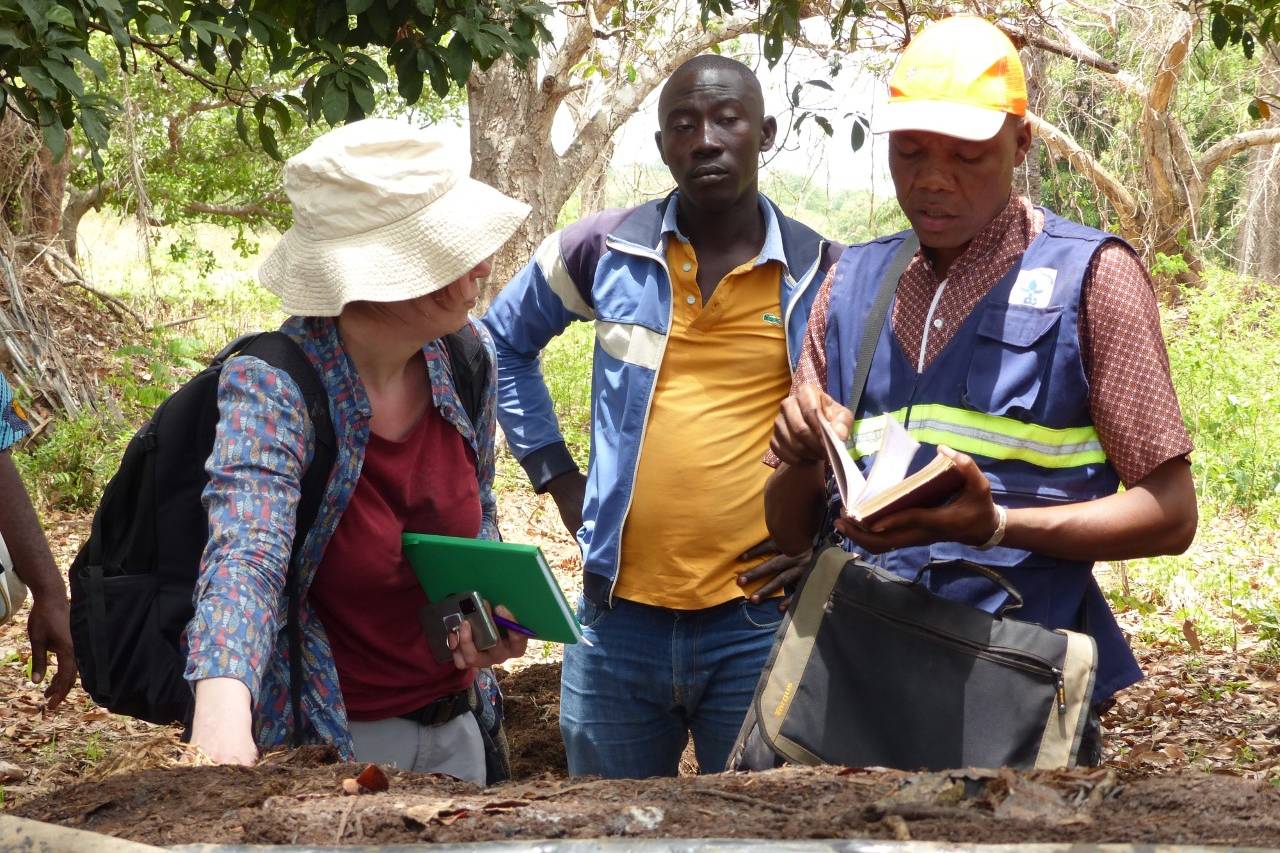

Aid by Trade Foundation (AbTF)
The Aid by Trade Foundation (AbTF) has launched a new EUR2.8 million (US$2.9 million) co-operative initiative to help small-scale farmers in Africa develop climate change mitigation techniques.
CAR-iSMa, short for ‘Climate Adaption and Resilience: A Pan-African Learning and Knowledge Exchange Project on Improved Soil Management,’ was launched by the Aid by Trade Foundation (AbTF), which administers Cotton made in Africa (CmiA), to primarily improve soil management through sustainable production methods in order to better the livelihoods of small-scale farming families, reduce the effects of climate change for this target group, and strengthen their resilience.
The climate adaptation project activities are expected to assist roughly 100,000 individuals engaged in cotton cultivation, according to the organization. The focus is on small-scale farmers who are assisted by CmiA-verified cotton firms in their communities. A qualification program for soil management trainers and training materials for agricultural consultants are also proposed as part of the project.
AbTF says that despite its critical role in climate protection, soil management frequently slips by the wayside. How they utilize their soil has a big impact on our climate, and it also determines whether rare plants and animals will survive and whether mankind will be able to live off the land in the future.
Small-scale farmers’ livelihoods and survival in Africa are heavily dependent on how changing climate conditions impact the fertility of their soil. AbTF created CAR-iSMa, a co-operative initiative with a total budget of roughly EUR2.8 million, to help farmers improve resiliency and adapt to changing climates.
The climate adaptation project is being implemented in collaboration with the agriculture organization LDC Suisse and three CmiA-verified cotton companies: CIDT from Côte d’Ivoire, JFS from Mozambique, and LDC from Zambia, and is supported by the Deutsche Gesellschaft für Internationale Zusammenarbeit (GIZ) with funding from the German Federal Ministry for Economic Cooperation and Development (BMZ).
Soil & More Impacts (SMI), a firm that focuses on soil and composting and provides services for sustainable agriculture, is assisting the initiative by providing advice on how to improve soil fertility. SMI is also collaborating with three African cotton groups to begin delivering composting and regenerative agriculture training to small-scale farmers.
Tina Stridde, managing director of the Aid by Trade Foundation, said that through the CAR-iSMa initiative, they’re making a significant contribution to climate protection by aiding small-scale farmers in Africa in creating measures to mitigate climate change consequences. Their objective is for present and future generations of farmers to be able to make a livelihood off the cotton grown on their land. To attain this aim, it is critical to sustainably manage soil as a natural resource in a sustainable manner, which is why that is their primary focus in this project.
Britta Deutsch, head project manager for CAR-iSMa, said that soil is vital to the livelihoods of many small-scale farming families. Farmers are suffering as climate change causes the land to become increasingly dry and infertile, and they lack the knowledge and resources they require to adapt. They were able to establish through an on-site assessment that cotton farmers are interested in learning more about composting and other components of regenerative agriculture in order to prevent erosion, retain soil fertility and assure their land’s long-term production.
Innovative approaches such as self-cultured compost microbes and pyrolysis—which produces vegetable carbon, thereby capturing carbon in the soil for the long term while also improving soil structure and water-retention capacity—will be tested as part of the project before potentially being rolled out across CmiA’s wider network. The goal is to improve soil fertility on 92,000 hectares of land.
A transnational and inter-organizational information exchange amongst the participating cotton associations is another area of concentration. After the study, effective ideas should be applied across the CmiA network in Africa to scale up the long-term advantages of the lessons learned and good experiences. AbTF hopes to improve the production techniques of small-scale farmers in this way.
The CAR-iSMa project is part of the Sub-Saharan Cotton Effort, a global program targeting sustainability and value creation in agricultural supply chains under the auspices of SEWOH, a German special initiative for a world without hunger.
Delius, a renowned textile manufacturer based in Bielefeld, Germany, is setting new benchmarks in sustainable contract fabrics with its EcoSafe…
Bank & Vogue, the parent company of Beyond Retro, is redefining sustainability in the fashion industry through groundbreaking upcycling projects.
Ravel, a recycling startup, has successfully closed its pre-seed funding round, marking a major milestone in its mission to revolutionize…
Milliken & Company has offered firefighter turnout gear with three layers, the outer shell, thermal liner, and moisture barrier, made…
Footwear brand Kanso is introducing the Dragonfly, a high-performance shoe designed specifically for indoor sports like handball, volleyball, and badminton.
Polartec is introducing an upgraded Power Shield collection with waterproof shell fabrics, made from recycled and plant-based nylons.